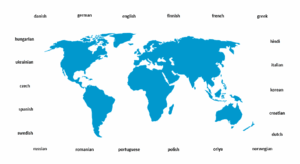
The Burden Scale for Family Caregivers (BSFC) was designed to measure the subjective burden of informal caregivers (CGs). It was developed in 1993 and has since been extensively validated (Gräßel, 2001; Grau et al., 2015).
The BSFC is a self-assessment scale with 28 statements about various aspects of the subjective burden of CGs. Subjective burden is based on Lazarus’ Transactional Stress Model (1984): The primary appraisal includes the assessment of the CG’s direct experience with the care situation, while the secondary appraisal includes the assessment of how the CG deals with the care situation. The BSFC was developed to record the CG’s subjective burden based on this model.
For each of the 28 statements, the degree of agreement is determined using a 4-point scale (strongly agree, agree, disagree, strongly disagree). The score ranges from 0 to 84 points, with a higher score indicating greater subjective burden. The BSFC is easy to use in both research and practice and is available free of charge.
The BSFC is available in the following languages: Croatian, Czech, Danish, Dutch, English, Finnish, French, Finnish, German, Hindi, Hungarian, Italian, Korean, Norwegian, Oriya, Polish, Portuguese, Romanian, Russian, Spanish, Swedish, and Ukrainian. You can register here to download the BSFC.
CGs have an increased risk of developing psychological complaints, especially depression (e.g., del-Pino-Casado et al., 2019; del-Pino-Casado et al., 2021) and physical complaints, (e.g., cardiovascular diseases; Ahn et al., 2022). Another risk factor is abusive behavior toward care-recipients (Boye & Jan, 2018), including aggressive behavior (Storey, 2020). There are CGs to whom none of these risks apply.
However, there is a scientifically supported correlation between these risks and the subjective burden of the CG: The greater the subjective burden of the CG, the more pronounced the health (Gräßel, 1998) and behavioral (Boye & Jan, 2018) risks to the CG. It is thus important to identify “at-risk relatives” (i.e., those with a high level of stress). Measures can then be introduced to reduce the burden and thus the risk of negative effects.
The BSFC was developed and validated for CGs, regardless of the cause of the need for care (e.g., stroke, cancer, rheumatism, dementia), regardless of the relationship of the CGs to the care-recipients (caregiving parent, caregiving partner, caregiving adult children, no degree of kinship with relatives), and also regardless of the intensity of the need for help (from light support to severe need for care). The BSFC can also be used regardless of the severity of the need for assistance, from the initial need for support to the need for round the clock care. The prerequisite is that the CGs must be informal CGs. The burden on professional CGs can be validly recorded using another instrument: the Professional Care Team Burden (PCTB) scale (Auer et al., 2015).
The BSFC is a valid screening instrument in practice (e.g., in a counseling setting) as well as in research. Due to its availability in several languages, a cross-cultural comparison of the subjective burden of CGs is also possible. You can find a comprehensive overview of research with the BSFC here.
In practice, the BSFC can be helpful for advising CGs. Several approaches for assisting CGs can be identified by looking at the items that show a high burden. In addition, by repeatedly administering surveys, it is possible to assess the effectiveness of assistance by reducing subjective burden.
The evaluation and interpretation are carried out in three steps:
(1) Point value per item: Each item in the BSFC is rated on a four-point scale:
| Answer to Items 1, 6, 8, 9, 11, 14, 15, 17, 19, 22, 28 | Points |
| strongly disagree | 3 |
| disagree | 2 |
| agree | 1 |
| strongly agree | 0 |
| Answer to Items 2, 3, 4, 5, 7, 10, 12, 13, 16, 18, 20, 21, 23, 24, 25, 26, 27 | Points |
| strongly agree | 3 |
| agree | 2 |
| disagree | 1 |
| strongly disagree | 0 |
(2) Calculation of the total value from the point values of all 28 items.
(3) Interpretation of the total value: The higher the total score, the more pronounced the subjective burden.
Here you can download information on the evaluation and interpretation of the BSFC.
Here you can download information about how to deal with missing values.
Ahn, S., Esquivel, J. H., Davis, E. M., Logan, J. G. & Chung, M. L. (2022). Cardiovascular disease incidence and risk in family caregivers of adults with chronic conditions: a systematic review. Journal of Cardiovascular Nursing, 37(3), E47-E60.
Auer, S., Graessel, E., Viereckl, C., Kienberger, U., Span, E. & Luttenberger, K. (2015). Professional Care Team Burden (PCTB) scale – reliability, validity and factor analysis. Health and Quality of Life Outcomes, 13(17). DOI: 10.1186/s12955-014-0199-8. (Open access)
Boye, F. & Yan, E. (2018). Abuse of older persons with dementia: A review of the literature. Trauma, Violence & Abuse, 19(2), 127-147.
del-Pino-Casado, R., Priego-Cubero, E., López-Martínez, C. & Orgeta, V. (2021). Subjective caregiver burden and anxiety in informal caregivers: A systematic review and meta-analysis. PLOS ONE, 16(3), e0247143.
del-Pino-Casado, R., Rodriguez Cardosa, M., López-Martínez, C. & Orgeta, V. (2019). The association between subjective caregiver burden and depressive symptoms in carers of older relatives: A systematic review and meta-analysis. PLOS ONE, 14(5), e0217648.
Gräßel, E. (2001). Häusliche-Pflege-Skala HPS: zur Erfassung der Belastung bei betreuenden oder pflegenden Personen. Ebersberg: Vless.
Grau, H., Graessel, E. & Berth, H. (2015). The subjective burden of informal caregivers of persons with dementia: extended validation of the German language version of the Burden Scale for Family Caregivers (BSFC). Aging & Mental Health, 19(2), 159-168.
Lazarus, R.S. & Folkman, S. (1984). Stress, appraisal, and coping. New York, NY: Springer.
Storey, J. E. (2020). Risk factors for elder abuse and neglect: A review of the literature. Aggression and Violent Behavior, 50, 101339.
You can register to download the scales here.
! Those responsible for this website guarantee that all information provided during registration will be treated confidentially, in particular that it will not be passed on to third parties.
Downloading is permitted for non-commercial use only, which means specifically that
- the respondent completing the self-assessment tool incurs no immediate (direct) costs (billing as a health insurance benefit by third parties, e.g., doctors, is possible) and
- the BSFC is not resold to third parties in any form as part of a combined survey tool consisting of several survey instruments (e.g., as part of a larger, fee-based assessment tool).
Burden Scale for Family Caregivers (BSFC); Burden Scale for Family Caregivers – short form (BSFC-s); Informal Caregiver (CG)

1 comment on “Burden Scale for Family Caregivers (BSFC)”